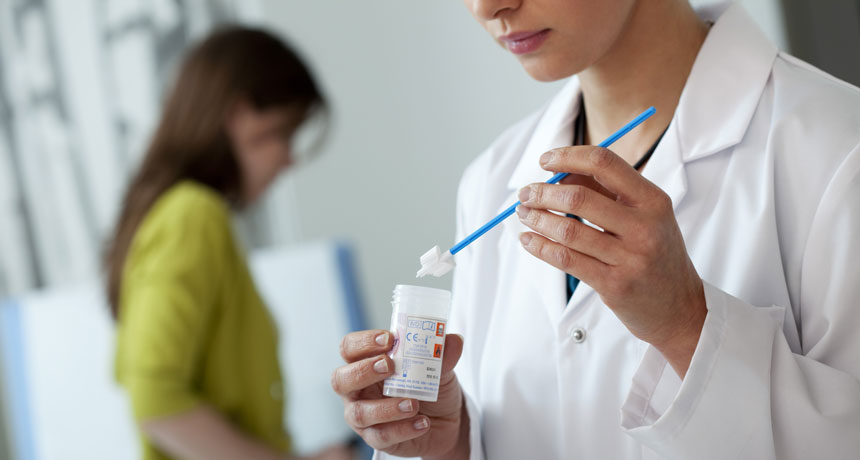There’s a new cervical cancer screening option

For cervical cancer screening, there’s a new option in town.
Women ages 30 to 65 can opt to have human papillomavirus, or HPV, testing alone every five years, according to new recommendations from the U.S. Preventive Services Task Force.
HPV testing alone joins two other alternatives that are still endorsed: an HPV test plus a Pap test every five years, or a Pap test alone every three years. The guidelines, published online August 21 in JAMA, are the first update to the group’s cervical cancer screening recommendations since 2012.
Recent research has shown that HPV testing, which checks for the presence of the sexually transmitted virus in a sample of cervical cells, is better at catching precancerous lesions early than the traditional Pap test, which looks for those lesions in a cervical cell sample.
Globally, cervical cancer is the fourth most common cancer among women. HPV causes nearly all cervical cancers.